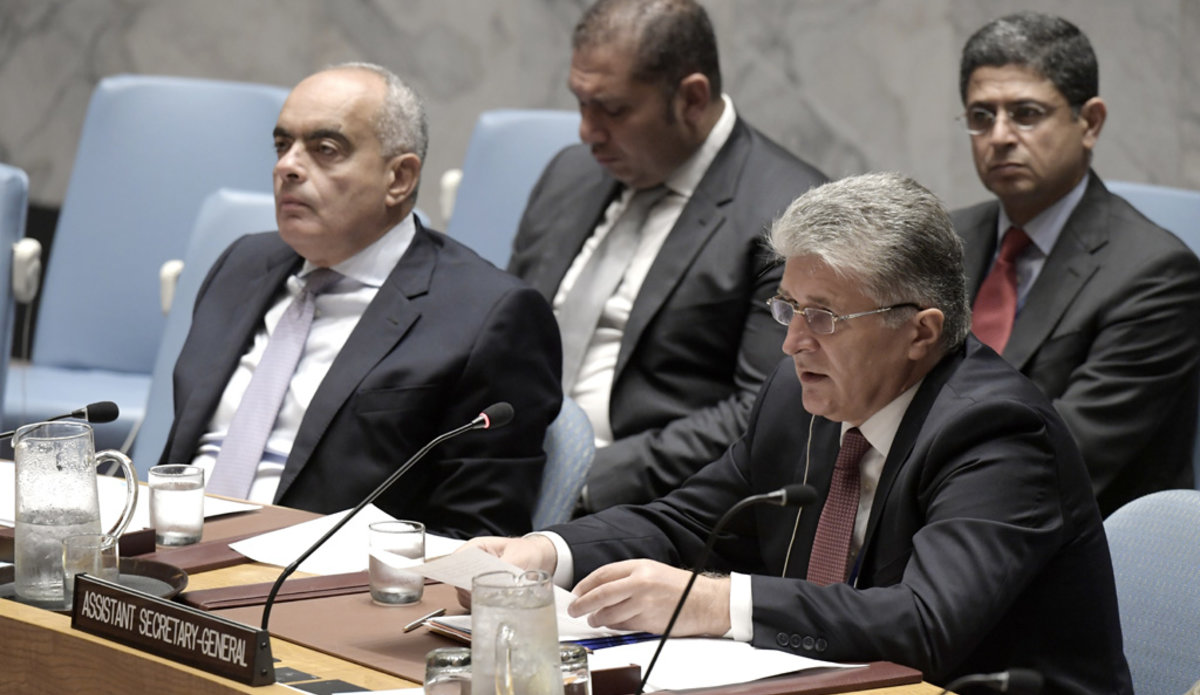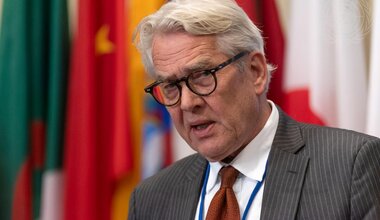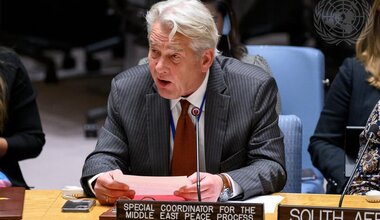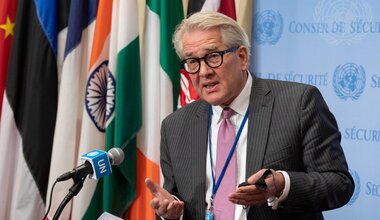Senior UN political official concerned by recent incidents that undermine Middle East peace process
A senior United Nations political affairs official today voiced concerns over recent developments that undermine efforts to end the long-standing Israeli-Palestinian conflict, including Israel's move to amend a law to cement its control over East Jerusalem.
“Jerusalem is a final status issue that must be resolved through negotiations between the parties,” Assistant-Secretary-General for Political Affairs Miroslav Jenèa told the Security Council during his briefing on the situation in the Middle East.
He said that if approved, the proposed amendment to the “Basic Law: Jerusalem the Capital of Israel” would further cement Israeli control over occupied East Jerusalem and would limit the ability of both sides to reach a negotiated solution that is in line with UN resolutions and prior agreements.
“Any move which could impact demographics in the city is extremely worrisome and could spark violence,” he said.
Citing the latest settlement activities by Israel, he said that “such actions only fuel perceptions that those working to obstruct the two-state solution are gaining the upper hand” and reiterated that settlements are illegal under international law and an obstacle to peace.
Mr. Jenèa said that the recent crisis in Jerusalem's Old City – including several violent attacks and the resulting temporary closure of the Al-Aqsa Mosque – highlighted the unsustainability of the current situation, and the need for a political horizon and a clear re-commitment by the international community and both parties to realizing a two-state solution that meets the legitimate national aspirations and security needs of both Palestinians and Israelis.
Commending Israel and Jordan for bringing the crisis to an end, as well as religious leaders on both sides of the conflict for their calls for de-escalation, he said continued coordination between Israel and the Palestinian Authority was paramount in the current context.
Turning to Gaza, he recalled a recent UN country team report that expressed concerns that the enclave could become unlivable by 2020. He noted that since the hostilities between Hamas and Israel three years ago that killed nearly 1,500 civilians, the overall humanitarian conditions have worsened, with some 29,000 people remaining displaced despite reconstruction efforts.
Mr. Jenèa went on to call on Palestinian leaders to address the destructive consequences of their ongoing divisions, urging Hamas to ensure that calm is maintained by ending the militant build-up against Israel and to do its utmost to sustain security at the border with Egypt.
Israel for its part should also step-up measures to lift its closures and facilitate Gaza's development in line with Council resolution 1860 (2009). In addition, he called on donors to respond urgently to the $25 million humanitarian appeal issued in July in the wake of the electricity crisis, and to fill the current 70 per cent funding gap.
He urged all parties to the conflict to take the necessary steps for an enduring peace.
 UN
UN





